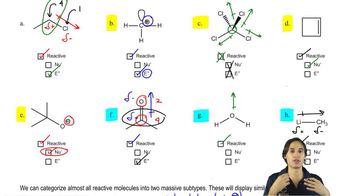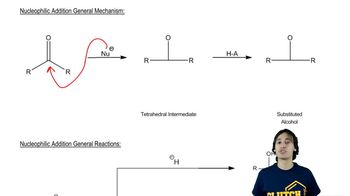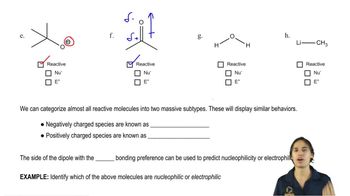Identify the nucleophile and the electrophile in each of the following reactions.
(a)

 Verified step by step guidance
Verified step by step guidance Verified video answer for a similar problem:
Verified video answer for a similar problem:



 5:14m
5:14mMaster How to tell if a molecule will be reactive or not. with a bite sized video explanation from Johnny
Start learning